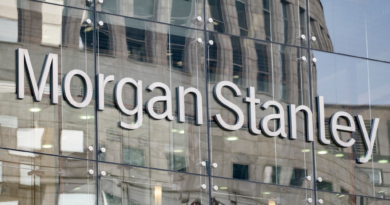Larry Summers, who more and more thinks 'ChatGPT is coming for the cognitive class,' just joined OpenAI's board to seal Sam Altman's triumphant comeback
OpenAI resolved its five-day-long saga late Tuesday night when it reinstated Sam Altman as CEO and restructured its board. Now the board that had previously fired Altman without giving the public a clear reason looks very different upon the cofounder’s comeback.
Along with his return, Altman secured a more favorable board. Two new directors will join: Bret Taylor, former board chair of Twitter, who will lead the new board (Altman ally Greg Brockman was stripped of that role at the time Altman was ousted) and Larry Summers, the former Treasury Secretary and Harvard president and currently a vocal presence on all macroeconomic matters from his perch in the university’s economics department.
The only prior board member guaranteed to return is Adam D’Angelo, the founder of the question-and-answer site Quora who also has his own AI startup, Poe. There are still ongoing negotiations about whether prior board members entrepreneur Tasha McCauley, Georgetown professor Helen Toner, and OpenAI cofounder and chief scientist Ilya Sutskever will return. Sutskever was one of the ringleaders of the decision to fire Altman but later recanted on his decision to do so, reportedly after a tearful confrontation by Brockman’s wife.
During talks with the previous board about his return, Altman originally pushed for a board seat of his own, a request that was rejected, according to the Wall Street Journal.
Summers, who already serves on the board of several other technology companies, was the surprise addition. His other directorships include Block, Twitter founder Jack Dorsey’s payments company; real estate tech firm Doma Holdings; and Skillsoft, a software company. Since 2011, he has also been a special adviser to Andreessen Horowitz, one of the most powerful VC firms in Silicon Valley, which is also an investor in OpenAI.
Not an obvious choice
The renowned economist, who is revered in D.C. circles, has a long history serving at the highest levels of government but is not an obvious choice for a board seat on the leading company in the AI race. In recent years, however, Summers has opined on AI’s effect on the future of the U.S. and global economy. He has considered it both a technology of great promise and one that will invariably leave countless workers out of a job.
“More and more, I think ChatGPT is coming for the cognitive class,” he wrote in a post on X in April. “It’s going to replace what doctors do—hearing symptoms and making diagnoses—before it changes what nurses do—helping patients get up and handle themselves in the hospital.”
Summers isn’t alone in this school of thought. Research from consulting firms and Wall Street banks has turned up similar conclusions. McKinsey, one of the world’s biggest consulting firms, projected that AI will force approximately 12 million workers to switch jobs by 2030, up 25% from the amount it had forecasted just two years earlier. Meanwhile, Goldman Sachs estimates AI and automation could impact 300 million full-time jobs across the world. AI has caused much debate, not only for the scale of its possible job disruption but because it stands to be the first to upend jobs for white-collar workers, whose jobs were typically safe from technological change.
“Most of the technological changes we’ve had before came for working people doing relatively routine things,” Summers said in a Bloomberg interview. “They were automatic ways of picking cotton that came from agricultural workers, they were things that replaced typists or telephone operators.”
The marked shift from previous technological leaps is part of what’s caused much of the consternation surrounding the rise of AI in particular, according to Summers. “Part of the reason you’re seeing such hysteria now is that it’s the people who write articles and their friends…who are more at risk from AI competition than has been the case for most of the technological innovation in the past,” he told Bloomberg, referring to his own job as one that could be automated away. “I would say that there’s a substantial chance that AI is going to be much more of a threat to IQ than it is to EQ.”
Some business leaders and economists are reaching a similar conclusion—with a slight variation. They believe AI is more likely to replace certain job tasks, as opposed to entire roles—at least in the near future. That doesn’t mean in the future some jobs may not become entirely obsolete, but not without the creation of new ones that don’t exist yet. McKinsey’s report also found that generative AI could automate tasks that account for 30% of hours worked. IBM CEO Arvind Krishna has long been optimistic about AI’s ability to make back-office functions more efficient, saying it can already do 10% to 20% of “lower-level” tasks. Programmers at IBM could become 30% more efficient, Krishna estimates, which won’t limit jobs at his company but rather spur increased productivity so he can hire more.
The genie is out of the bottle
Despite the possible changes to the labor market, Summers is hardly a Luddite or tech doomer. His public statements indicate a person who is aware the proverbial genie cannot, and perhaps should not, be put back in the bottle. Whatever changes AI will bring, there is “no doubt there are ultimately going to be very large benefits from all of this augmented intelligence capacity,” he said during a talk at Stanford this spring.
Many of AI’s biggest bulls, including Altman himself, have echoed similar sentiments. “I think we’re heading towards the best world ever,” he told New York Times in a podcast interview recorded just a few days before he was fired.
Now returning to helm the company he cofounded, Altman will have in Summers a board member who may not share his same technical know-how but does share his belief that a future will be heavily influenced by AI. “Frankly I would rather see us look to the future than I would want to see us trying to preserve the past,” Summers told the audience at his Stanford talk.



